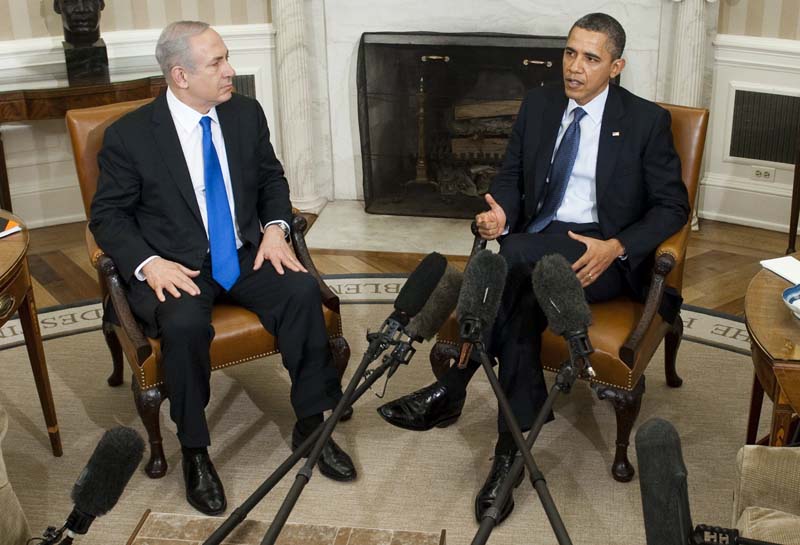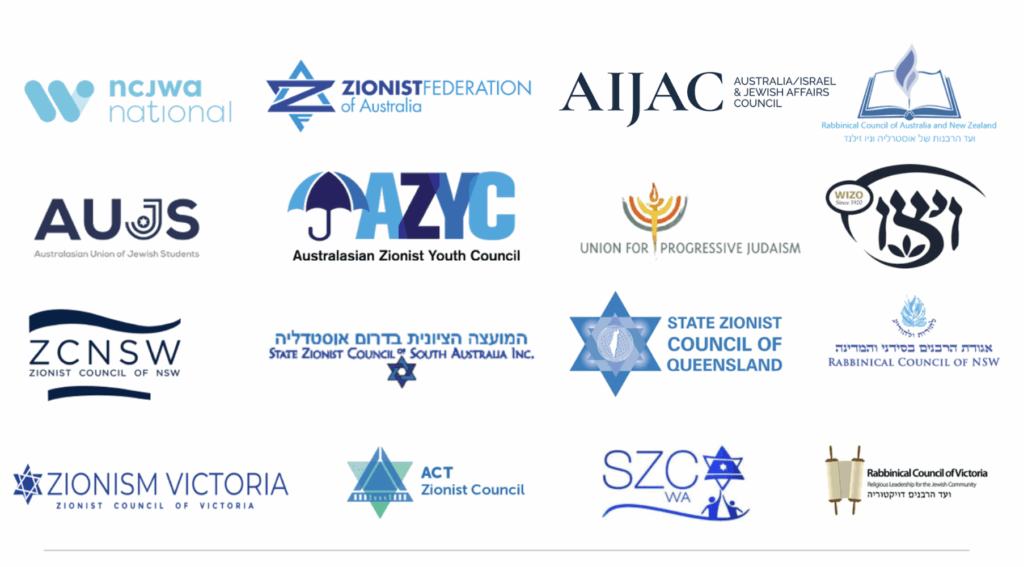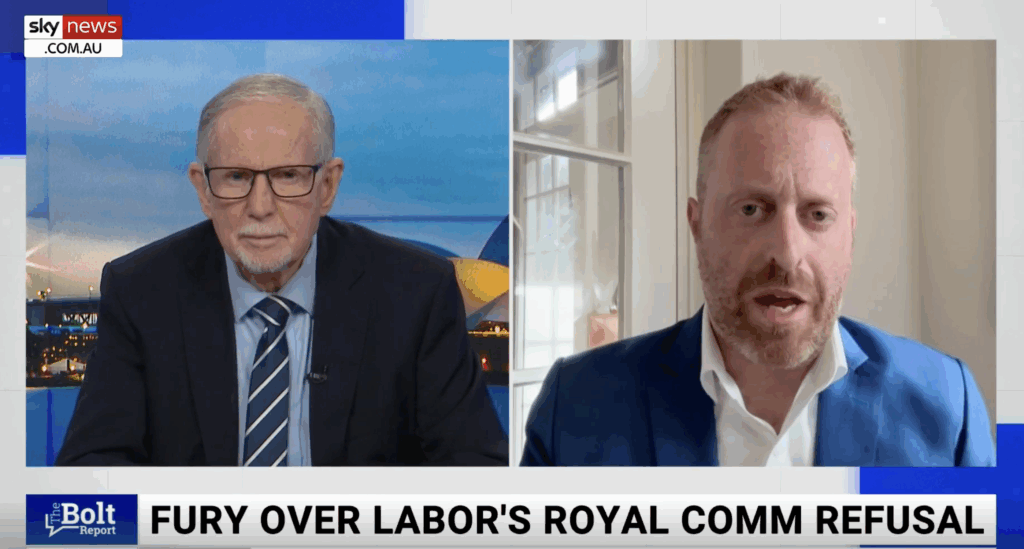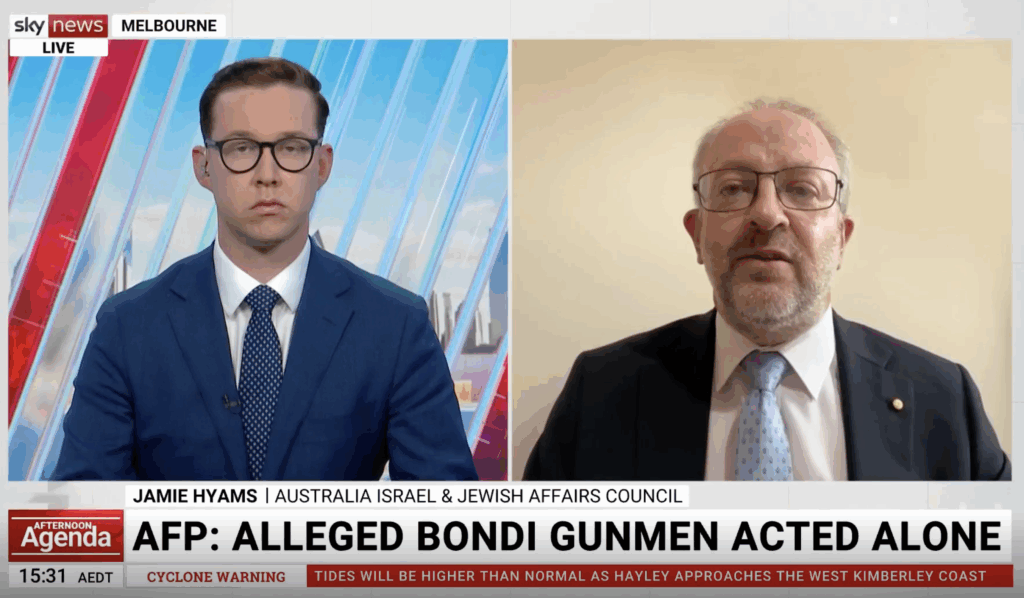UPDATES
Obama and Bibi and Iran
March 7, 2012

Update from AIJAC
March 7, 2012
Number 03/12 #02
The past few days saw an intense period of discussion about the Iranian nuclear crisis in Washington involving both US President Obama, and visiting Israeli PM Binyamin Netanyahu. The three focal points of analysis were Obama’s Speech to the America-Israel Public Affairs Committee (AIPAC) on Sunday (video here), the subsequent meeting between the two leaders on Monday and their public statement following the meeting, and Netanyahu’s Speech to AIPAC on Monday evening (video here). We recommend reading all three original texts, and provide analysis of the context of all three below.
First up is detailed analysis of Obama’s speech from the always penetrating Robert Satloff, director of the Washington Institute for Near East Policy. He notes the key elements of the speech – legitimisation of Israel’s fears of a nuclear Iran and right to act against this threat if necessary; a re-affirmation that stopping Iran is not simply an Israeli concern; a defence of his administration’s policy on Iran; an acknowledgement that sanctions are only useful if they stop a nuclear Iran and a plea to give them time to work; an affirmation that the goal is to prevent a nuclear Iran, not to contain it; and strong implications the US could use force, in extremis, to stop Iran going nuclear. Satloff also analyses what was between the lines in the speech or left out – including neither any affirmation or repudiation of recent efforts by some in his Adminstration to stress the costs of military action or disparage Israeli ability to use force successfully, as well as any sort of discussion of the crucial issues of “red lines, timeframes, or triggers for potential military action.” For this essential analysis in full, CLICK HERE. More varied reaction to the Obama speech (and a relevant interview with the Atlantic) was summarised in a blog post by Sharyn Mittelman yesterday.
Next up is noted Israeli security correspondent Ron Ben Yishai, who focuses on the crucial issues Netanyahu likely wanted to clarify in his meeting with Obama. These include coordination of concrete aims, interim objectives, and timetables for the sanctions regime, and what happens if it fails, and the demands to put to Iran in any negotiations. Most important was the discussion of the “red line” – at what point is a military strike the only option, with Israel seeking to place that “red line” at Iran achieving nuclear capability (such as the enrichment of uranium to weapons grade) and the US traditionally holding that actual construction of a weapon should be the “red line.” For this insight into what Israel hoped to achieve in the meeting with Obama from a very knowledgeable journalist, CLICK HERE. More on the vital Israeli-American disagreement on “red lines” comes from highly regarded American journalist Eli Lake.
Finally, some important comments on the talks comes from Israeli journalist and blogger Shmuel Rosner. One important point he makes is that the cynical over-emphasis in much of the commentary on the political calculations of both Obama and Bibi is wrong – on issues such as this, political manoeuvring will play a subordinate role in the thinking of both leaders. He also notes that Obama’s speech can be, and had been widely interpreted differently depending on which elements are emphasised – and he provides the evidence. For Rosner’s varied but valuable points, CLICK HERE.
Readers may also be interested in:
- The leading Republican candidates against Obama – Mitt Romney and Rick Santorum – also spoke to AIPAC yesterday; some comments and links regarding their remarks come from Jennifer Rubin of the Washington Post. Romney also had a Washington Post op/ed on Iran, to which Obama indirectly responded – more that whole debate in this blog post.
- The International Atomic Energy Agency says Iran has tripled its production of 20% enriched uranium, which is, in terms of technical difficulty, most of the way towards weapons grade and well beyond what is needed for civilian nuclear power.
- A report that sanctions are starting to strongly affect Iran’s future oil sales.
- Former US senior official Elliot Abrams is critical of some of the rhetoric on Iran coming from Obama Administration officials. Plus, foreign policy pundit Walter Russell Mead makes the case for “loose talk about war”, something Obama deplored.
- The always insightful Israeli author Yossi Klein Halevi explains why Israelis worry about trusting the US to deal with the Iranian nuclear threat.
- Expert on the Iranian nuclear issue Emanuele Ottolenghi, who is visiting Australia shortly as a guest of AIJAC, makes the argument in the New York Times that assuming Iran’s rulers will make a rational cost-benefit calculus in response to sanctions is too simplistic.
- Some examples from the many stories and comments now appearing at AIJAC’s daily “Fresh AIR” blog:
- Analysis of the Iranian parliamentary elections.
- A Post on Arab writers starting to notice the hypocrisy of Arab opinion on Syria versus Israel,
President Obama on Iran: Assessing Key Passages in the AIPAC Speech
Policy Alert, March 5, 2012
In a speech that was part foreign policy and part domestic politics, President Obama came to the American Israel Public Affairs Committee conference yesterday morning to reassure an anxious Israel — and Israel’s U.S. supporters — that his administration was committed to the full logic of a “prevention” strategy in dealing with the Iranian nuclear challenge, including the potential use of military force. While the president mentioned Israel’s “sovereign right” to act in its own self-defense and labeled as a “basic truth” the assertion that no Israeli leader could live with a nuclear-armed Islamic Republic of Iran, an unspoken subtext of the president’s remarks remained a clear preference for Israel to hold back on its own preventive military action and let the noose of international sanctions tighten around the neck of Iran’s rulers until they are forced to choose between giving up their quest for a nuclear weapon or facing what he called possible U.S.-led military “contingencies.”
Key Themes
The main elements in the president’s message on Iran were:
- Affirmation that he views as legitimate both Israel’s fear of the potential implications of a nuclear-armed Iran and Israel’s right to act against this threat should it deem such action necessary. In a passage on America’s commitment to Israel’s qualitative military edge, the president specifically repeated the powerful and emotive mantra that “Israel must always have the ability to defend itself, by itself, against any threat.”
- Refutation of the argument that America’s interest in stopping Iran’s quest for a nuclear weapon is merely a response to special pleading for Israel. To the contrary, he enumerated several reasons why vital U.S. interests are at stake, beginning with a theme with which he is closely associated, proliferation: “A nuclear-armed Iran would thoroughly undermine the nonproliferation regime that we’ve done so much to build,” he said.
- A soup-to-nuts defense of his administration’s approach to Iran from the morrow of his inauguration, beginning with a jab at the Bush administration (“When I took office, the efforts to apply pressure on Iran were in tatters”) and culminating with a paternity claim for tough sanctions measures (such as those on the Central Bank of Iran), credit for which really belongs elsewhere (in this case, with Congress).
- Recognition that tightening sanctions is not an end in itself but only a means to achieve the goal of preventing Iran from acquiring a nuclear weapon. “The effective implementation of our policy is not enough; we must accomplish our objective,” he said. And here lies the sentence that amounts to the president’s plea for restraint from Israel: “And in that effort, I firmly believe that an opportunity still remains for diplomacy backed by pressure to succeed.”
- A declaration that his administration is committed to a policy of prevention (i.e., stopping Iran from acquiring a nuclear weapon), not containment (i.e., limiting Iran’s ability to employ a nuclear weapon, once obtained, as a tool of foreign policy): “Iran’s leaders should understand that I do not have a policy of containment; I have a policy to prevent Iran from obtaining a nuclear weapon.”
- Several iterations on the theme that the president is ready, in extremis, to use force to achieve U.S. strategic objectives vis-a-vis Iran: “I have said that when it comes to preventing Iran from obtaining a nuclear weapon, I will take no options off the table, and I mean what I say. That includes all elements of American power: a political effort aimed at isolating Iran, a diplomatic effort to sustain our coalition and ensure that the Iranian program is monitored, an economic effort that imposes crippling sanctions and, yes, a military effort to be prepared for any contingency.”
Reading between the Lines
Just as important as what the president said were certain important aspects of Iran policy that he did not address, especially given the heated media run-up to his speech. On the positive side, the most important nonstatement was that he did not air publicly any of the arguments against military force that whisperers from inside his administration have been telling journalists in recent weeks, i.e., that Iran might retaliate with terrorist action inside the United States, that the global and/or domestic economic recovery would be threatened by a conflict-induced spike in oil prices, or that Iran might respond to U.S. action by targeting U.S. troops in Afghanistan. Those statements — including, at times, by the president himself — had the effect of undermining the overall thrust of U.S. strategy. What the president said at AIPAC — and what he did not say — should be the final word for the rest of the administration; the two key tests are whether key officials who have strayed from the president’s line now follow it more closely, and whether the administration as a whole takes further action in accord with the president’s embrace of Teddy Roosevelt’s “speak softly and carry a big stick” policy.
On the negative side, it is important to note that the president did not take the opportunity to repair damaging statements by senior administration officials disparaging Israel’s ability to mount effective military operations against Iran. (By contrast, in his own AIPAC address, Israeli president Shimon Peres made the argument that Israel would not only fight if forced to defend its interests, but that it would “prevail.”) And by repeatedly saying his administration was committed to preventing Iran from acquiring a nuclear weapon — but never mentioning the capability to build a nuclear weapon — the president clearly settled the debate about what the goal of U.S. policy really is, in favor of the narrower definition of what Washington is actually trying to prevent (i.e., a weapon, not the broader capability to build a weapon).
One additional item noticeable by its absence was any message to the people of Iran. This was a lost opportunity. At a time when the administration is counting, at least in part, on the punitive impact of sanctions to compel Iran’s leaders to change course; when U.S. officials are decrying the increased militarization of the Iranian regime; when Iran just completed parliamentary elections in which only varieties of conservatives were allowed to run; and when the people of Syria, Iran’s only Arab ally, are rising up courageously against tyranny, it would have been a useful moment for the president to underscore America’s hope that the people of Iran will soon enjoy the “universal rights” he frequently extols in Arab countries undergoing transition. One hopes this lacuna was not a product of the commonly held — but profoundly mistaken — idea that outreach to the Iranian people complicates nuclear diplomacy with the regime.
Perhaps most important, the president made no mention of specific red lines, timeframes, or triggers for potential military action, effectively sidestepping the “zone of immunity” issue that may be driving Israel toward military action sooner rather than later. The implication of the president’s remarks is that it is critical to see whether a series of impending sanctions — Iran’s suspension from the SWIFT international banking clearance system, the U.S. ban on dealings with Iran’s Central Bank, and the European prohibition on oil imports — will impose sufficient pressure on Iran’s rulers to make them change course on the nuclear issue. What is clear is that the cumulative impact of these measures will only be felt well past the date when Defense Minister Ehud Barak once said Israel may be unable to mount its own operations against Iranian nuclear facilities.
Although the president cannot be faulted for failing to specify timetables for U.S. military action in a public speech, there is intense speculation as to whether Israeli prime minister Binyamin Netanyahu is keen to hear more specifics about this aspect of U.S. strategy in his private meeting with the president today. Here, the two leaders are likely to strive for the golden mean between clarity (so they can avoid misunderstanding) and ambiguity (so they can preserve freedom of maneuver in the future) that sounds optimum in a seminar room but is difficult to achieve in the real world.
Robert Satloff is executive director of The Washington Institute.
Back to Top
————————————————————————
Will US rescue Israeli pilots?
Issues likely raised by Netanyahu in his meeting with Obama
Ron Ben-Yishai
Ynet.com, 03.06.12
Monday’s meeting between US President Barack Obama and Prime Minister Benjamin Netanyahu was prepared well. However, it was easy to notice, in the photo opportunity at the start of the meeting, that Obama is very tense, as is the guest from Israel. Some attributed it to the lack of affinity, and maybe even chronic hostility, between the two figures. However, it appears that this time the tension was related to substantive issues and stems from the great gaps regarding strategy and tactics on the Iranian nuke issue.
It was quite clear that Netanyahu has decided, on Defense Minister Ehud Barak’s advice and with his assistance, to do everything in his power in order to reach understandings and agreements with Obama on concrete and practical steps and timetables. Netanyahu, as a former commando and Barak’s subordinate, knows that success and failure hinge on the details. Hence, he aspired to reach detailed coordination with the US president and his associates on the strategic aims, midway objectives, and the way Israel and the US would act in case the steps adopted on the Iranian issue fail to elicit the desired results.
Netanyahu knows that Obama needs him on a presidential election year and apparently attempted to leverage this fact to the maximum.
The US agrees with Israel that the sanctions gravely harm Iran but are not achieving their objective. Given the sanctions’ gravity and pace, by the time they elicit results Iran would already possess the ability to produce a first nuclear device if not more, Israeli officials claim. Hence, Israel wants the sanctions to be tightened immediately and implemented quickly, much before July of this year.
However, the Americans are saying: “Wait a little. Note that the Iranians have already told the Europeans they are willing to sit at the negotiating table in order to come up with a solution to the problem.” Netanyahu’s position is different, especially in terms of the pre-conditions he suggested for entering talks with the Iranians. He demands that world powers present three demands to Iran right away:
One demand is immediate suspension of uranium enrichment in Iran’s territory. The second demand is the transfer of some 5,600 kilograms (roughly 12,500 pounds) of low-grade enriched uranium out of Iran’s territory. The third demand is a halt to the installation of centrifuges and the dismantlement of existing ones at the Fordo facility, located deep underground near Qom. Running this site in full capacity of 3,000 centrifuges is considered by Israel as a situation where it would be unable to effectively hinder Iran’s nuclear program via an aerial strike.
Until now, the Americans claimed that this triple demand is impractical, and that the Iranians must not be pressed by being presented with the desired ultimate result of the talks as a precondition for starting negotiations. Obama believes the talks should be held while showing maximal consideration and goodwill in the aims of producing a positive atmosphere. This is apparently one of the first points of disagreement raised Monday in the talk between the two leaders at the Oval Office.
What’ the red line?
Another issue raised in the meeting was the American reaction in case talks with the Iranians fail. In such case, the Americans would impose another set of paralyzing sanctions they would try to pass at the Security Council. Israel demands a full embargo on oil and oil products to Iran and from Iran, paralysis of trade and money transfers vis-à-vis Iranian banks, and heavy penalties on those who violate these boycotts.
The most difficult issue to resolve is what the media refers to as America’s “red line.” That is, the point where Israel and the US would agree that Iran’s progress requires an Israeli or American military strike of any kind or a combination of the two. President Obama told AIPAC that the US won’t tolerate a situation where Iran possesses nuclear weapons. However, Israel says defining the red line this way would in fact enable the Iranians to become a nuclear power. While Tehran won’t possess a nuclear warhead or atomic bomb, it would be able to produce a nuclear device at any given moment.
Under such state of affairs, Iran’s leadership would merely have to make a decision and then produce within six months at most a nuclear weapon. As opposed to uranium enrichment, the development of the actual weapon can be hidden relatively easily, and hence the Americans would not even know about it, just like they didn’t know when Pakistan, India and North Korea turned into military powers in practice.
Hence, Israel demands that the American “red line” would be defined as “nuclear capability,” that is, Iran’s shift to producing 90% enriched uranium, or a large quantity of 20% enriched uranium. Netanyahu also made it clear to Obama that Israel’s red line is a situation whereby the new, underground enrichment facility at Fordo will approach full capacity.
A no less complex issue is what would happen should Israel realize its sovereign right – recognized by Obama – to defend its citizens, by launching a strike in Iran. Hence, we can assume that on this front Netanyahu asked Obama and Defense Secretary Panetta several blunt questions, such as: Will the Israeli Air Force be allowed to use US electronic codes, which identify friendly jets in an airspace where the US exercises control or maintains a presence? Will the US take part in search and rescue operations for Israeli pilots forced to bail out?
In this context, Israel may also have some requests: For example, that the US sell or loan aircraft used for refueling jets in the air, or offer financial assistance that would allow Israel to accelerate the deployment of more Iron Dome anti-rocket defense systems or new armaments.
The US has much to give Israel in the framework of strategic coordination and understandings. Netanyahu also did not arrive at the meeting with empty hands. The Iranian issue is significant and vital to world peace, to regional stability and to Israel’s ability to maintain normal life more or less. What remains now is to see what was achieved in the summit in practice. If the meeting failed, we shall know about it quite soon. Yet should it produce results acceptable to both sides, we’ll only know once things start taking shape on the ground.
Back to Top
————————————————————————
Do Obama and Netanyahu understand one another?
Five short comments on the Obama-Netanyahu meeting
Shmuel Rosner
Jewish Journal, March 5, 2012
1.
Following many of the pundits’ analysis of the Obama-Netanyahu meeting and of Obama’s AIPAC speech, one gets the impression that everything in this world of foreign policy is really about politics.
Obama wants to be nice to Israel because of the Jewish vote (election), and he opposes attack on Iran because of oil prices (election), and he wants to delay any decision until November (we all know what November brings), and he doesn’t fight much with Netanyahu over settlement activity so as not to anger voters (again, Jewish vote) and he still hopes diplomacy can work with Iran because his left-wing voters would not tolerate another US war in the Middle East, and so on and so forth.
This is not how things really work, and these aren’t the reasons for which Obama opposes an attack on Iran. Yes, the president is also a politician, and one has to be very naïve to assume that political considerations play no role in his thinking. However, for the president to oppose an Israeli attack is also quite logical and should not be surprising to anyone – even if this year were not an election year.
Israel is more nervous than Obama because A. Iran is more dangerous to Israel than to the US, and B. for Israel not to act soon means losing the ability to act (according to Defense Minister Barak). The US is more relaxed about Iran because A. Iran is less dangerous to the US, and B. the US can decide to act later (having the better equipped military). If fact, it would have been a surprise had the president not tried to persuade Israel that there’s still time. Presidents of the United States always want to preserve their freedom to maneuver, and this particular president sees no reason to commit now to something he may or may not want to do later.
2.
That Israel must remain “the master of its fate” is obvious. And that the prime minister has to say such thing is a sign that Israel will not commit to delay action against Iran – at least not publicly – is also quite obvious, and not at all surprising.
The bottom line is this: The meeting between Obama and Netanyahu is definitely important, but judging by their comments yesterday and today, not much has changed in recent weeks. Israel has to keep the threat of action alive, the US has to keep pushing for more diplomacy and sanctions, and keep reminding Israel that it is not alone, if it wants Israel to delay its decision on using military force and initiating war with Iran.
Robert Satloff of the Washington Institute explains: “the two leaders are likely to strive for the golden mean between clarity (so they can avoid misunderstanding) and ambiguity (so they can preserve freedom of maneuver in the future) that sounds optimum in a seminar room but is difficult to achieve in the real world”.
Was it achieved by Obama and Netanyahu? The frustrating reality is that we don’t know, and maybe not even they really know the answer to this question.
3.
What was Obama really saying at his AIPAC speech? My quick analysis from yesterday tried to give answer to this question. But right after writing, I skipped around a variety of news sites to compare the headlines and see what the spin the media was putting on his words. Take a look:
Washington Post: “Obama urges Israel to pursue diplomatic strategy with Iran”; NYTimes: “Obama Tries to Reassure Israel and Warns of ‘Loose Talk’”; WSJ: “Obama Has Tough Words for Iran”; USAToday: “Obama shuns ‘loose talk’ about war with Iran”; JPost: “Obama: There’s still time for diplomacy on Iran”; Haaretz: “Obama: All options remain on the table to prevent a nuclear Iran”; Times of Israel: “Obama: US won’t hesitate to use force against Iran.”
Do you see a pattern here? There are two options: Focusing on US-Israel gaps and focusing on Obama’s warning to Iran. We’ve got both. Namely, there was no agreed “theme” to this speech. It was a little bit of everything.
4.
And one more comment related to media coverage on the Obama-Netanyahu-Iran issue. As important or “crucial” as it might have been, both in Israel and the US other topics seemed more important this week. For Americans, naturally, it is Super Tuesday, for Israelis is the Ashkenazi-Barak battle over the so-called Harpaz affair. Both issues might not be as important, but the media believes (with good reason) that they attract more readers.
5.
The instinctive Israeli tendency to be satisfied whenever Palestinians are dissatisfied with President Obama – as they clearly were following his AIPAC speech – is somewhat childish. The Israeli-Palestinian relationship is not a zero sum game, when they lose we win. If Obama could make Palestinians happier without alienating Israelis it would have been better. Having said that, could Obama say anything of substance that would not result in the Palestinians complaining about the “one-sided” American approach? I doubt it.
Tags: Iran





